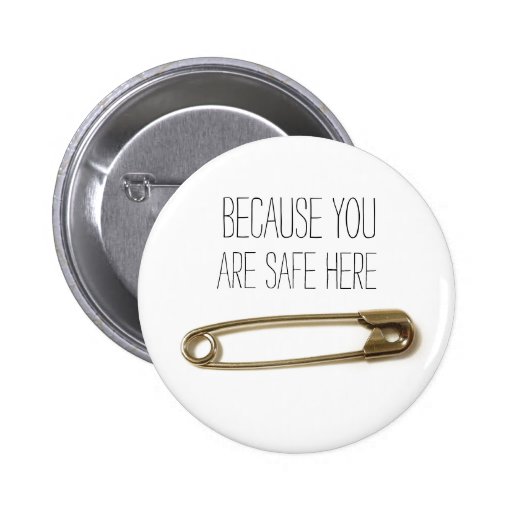A Call for Moral Courage: Beyond the Safety Pin
11/17/2016 06:34:32 PM
Nov17
| Author | |
| Date Added | |
| Automatically create summary | |
| Summary |
 “To wear or not to wear?” has become a question that has spurred earnest wrestling. On the surface, it may sound trivial, but it has been a first step in processing a response to the vast amount of bigotry that we have endured during Trump’s candidacy and the wild uncertainty of hazard that his presidency evokes. The safety pin has been a small concrete action that folks have taken to begin to pledge some kind of resistance.
“To wear or not to wear?” has become a question that has spurred earnest wrestling. On the surface, it may sound trivial, but it has been a first step in processing a response to the vast amount of bigotry that we have endured during Trump’s candidacy and the wild uncertainty of hazard that his presidency evokes. The safety pin has been a small concrete action that folks have taken to begin to pledge some kind of resistance.Whether it is a defiant act of protest or a trivial act of self-soothing remains to be seen (and likely will depend on each individual); however, the questions underneath the safety pin dilemma are monumental life inquiries. Ultimately, beyond the safety pin lies the call: how morally courageous are we willing to be? In what ways and in what domains will we resist what we understand to be amoral? What do we need to cultivate in order to take risks and manage our fears, to withstand ridicule, danger and to accept the likelihood of losses for such acts of moral courage.
Engaging in the discussion of whether to wear or not to wear the safety pin must not be superficial. Both the encouragement and the critiques of the safety pin should direct people to wrestle with these questions. At the heart of this is our tension as human beings to seek safety but also to live with integrity.
Living with moral courage demands that we put convenience aside. Signing a petition, making a donation, and wearing a pin are all acts that for some are small gestures of moral courage and others are convenient tokens of support. Much of it is in its own context. I would encourage us to seek guides, partners and communities that helps us do the inner work of discernment so we can know for each of us what is apathy, what is convenient and what is brave.
Moral courage can be a practice. A practice is a commitment to engage with constancy a particular attribute. Often starting with small acts and then increasing in potency and confidence. A practice prepares us to uphold our principles even when--especially when that principle puts us into conflict with the status quo. This comes with the understanding that challenging an accepted practice of the status quo, or in this case at least of the president elect and his team, will likely result in undesirable consequences.
The trend of wearing safety pins after the Brexit vote in the UK to connote “We stand by you. We will protect you. We are your friends.”, was inspired by when the safety pin was worn as a code of resistance of the Nazi occupation in the Netherlands. As the Netherlands surrendered, many of the Dutch continued to resist and to show their solidarity and identify themselves clandestinely they would wear safety pins underneath their collars and lapels to express, “Keep together. Keep your mouth shut.” according to Marlene Kadar in Working Memory: Women and Work in World War II. In Norway during the same time period, students from the University of Oslo wore paperclips on their lapels and as bracelets to declare, “We are unified and bound together”.
These acts were outward acts of courage, a demonstration of support that for some led to extraordinary acts of moral courage. While the act itself of donning a pin or a clip may or may not be empty, if it supports a way towards inner courage, moral courage then it can become personally very powerful. Harboring Jews and political dissidents, organizing protests to protect their values were actions that accompanied the wearing of these symbols.
If I remember correctly, Mark Twain remarked that it is puzzling that outward acts of physical courage are so common but moral courage so rare. That is the fear: what if the pin becomes so common and detached from moral courage that it is rendered meaningless and that instead of declaring safety it ironically becomes the safe thing to do. And beyond wearing the safety pin, what are we doing to cultivate moral courage and risk consequence? That is the challenge, to take up the practices that enable us to be steady in the face of fear and danger so that our greatest principles may be enacted for the safety of ourselves and those most in need. To wear or not wear is not the question, but when and where will moral courage emerge is.*
Fri, April 19 2024
11 Nisan 5784
CBH Blog recent posts
MLK Day with CBH
Wednesday, Jan 12 9:33am“Pray with Your Feet or Pray in Your Seat”
Thursday, Aug 26 9:10am
Fri, April 19 2024 11 Nisan 5784

